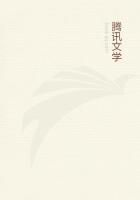1.Say CREDITS the physician with forty thousand francs,--the cost of his education.This amount should be entered upon the DEBIT side of the account.For, although this expense was incurred for him, it was not incurred by him.Then, instead of appropriating these forty thousand francs, the physician should add them to the price of his product, and repay them to those who are entitled to them.Notice, further, that Say speaks of INCOME instead of REIMBURSEMENT; reasoning on the false principle of the productivity of capital.The expense of educating a talent is a debt contracted by this talent.From the very fact of its existence, it becomes a debtor to an amount equal to the cost of its production.This is so true and simple that, if the education of some one child in a family has cost double or triple that of its brothers, the latter are entitled to a proportional amount of the property previous to its division.
There is no difficulty about this in the case of guardianship, when the estate is administered in the name of the minors.
2.That which I have just said of the obligation incurred by talent of repaying the cost of its education does not embarrass the economist.The man of talent, he says, inheriting from his family, inherits among other things a claim to the forty thousand francs which his education costs; and he becomes, in consequence, its proprietor.But this is to abandon the right of talent, and to fall back upon the right of occupancy; which again calls up all the questions asked in Chapter II.What is the right of occupancy? what is inheritance? Is the right of succession a right of accumulation or only a right of choice? how did the physician's father get his fortune? was he a proprietor, or only a usufructuary? If he was rich, let him account for his wealth;if he was poor, how could he incur so large an expense? If he received aid, what right had he to use that aid to the disadvantage of his benefactors, &c.?
3."There remains an income of twenty-six thousand francs due to the personal talents given him by Nature." (Say,--as above quoted.) Reasoning from this premise, Say concludes that our physician's talent is equivalent to a capital of two hundred and sixty thousand francs.This skilful calculator mistakes a consequence for a principle.The talent must not be measured by the gain, but rather the gain by the talent; for it may happen, that, notwithstanding his merit, the physician in question will gain nothing at all, in which case will it be necessary to conclude that his talent or fortune is equivalent to zero? To such a result, however, would Say's reasoning lead; a result which is clearly absurd.
Now, it is impossible to place a money value on any talent whatsoever, since talent and money have no common measure.On what plausible ground can it be maintained that a physician should be paid two, three, or a hundred times as much as a peasant? An unavoidable difficulty, which has never been solved save by avarice, necessity, and oppression.It is not thus that the right of talent should be determined.But how is it to be determined?
4.I say, first, that the physician must be treated with as much favor as any other producer, that he must not be placed below the level of others.This I will not stop to prove.But I add that neither must he be lifted above that level; because his talent is collective property for which he did not pay, and for which he is ever in debt.
Just as the creation of every instrument of production is the result of collective force, so also are a man's talent and knowledge the product of universal intelligence and of general knowledge slowly accumulated by a number of masters, and through the aid of many inferior industries.When the physician has paid for his teachers, his books, his diplomas, and all the other items of his educational expenses, he has no more paid for his talent than the capitalist pays for his house and land when he gives his employees their wages.The man of talent has contributed to the production in himself of a useful instrument.
He has, then, a share in its possession; he is not its proprietor.There exist side by side in him a free laborer and an accumulated social capital.As a laborer, he is charged with the use of an instrument, with the superintendence of a machine; namely, his capacity.As capital, he is not his own master; he uses himself, not for his own benefit, but for that of others.
Even if talent did not find in its own excellence a reward for the sacrifices which it costs, still would it be easier to find reasons for lowering its reward than for raising it above the common level.Every producer receives an education; every laborer is a talent, a capacity,--that is, a piece of collective property.But all talents are not equally costly.It takes but few teachers, but few years, and but little study, to make a farmer or a mechanic: the generative effort and--if I may venture to use such language--the period of social gestation are proportional to the loftiness of the capacity.But while the physician, the poet, the artist, and the savant produce but little, and that slowly, the productions of the farmer are much less uncertain, and do not require so long a time.Whatever be then the capacity of a man,--when this capacity is once created,--it does not belong to him.Like the material fashioned by an industrious hand, it had the power of BECOMING, and society has given it BEING.Shall the vase say to the potter, "I am that I am, and I owe you nothing"?
The artist, the savant, and the poet find their just recompense in the permission that society gives them to devote themselves exclusively to science and to art: so that in reality they do not labor for themselves, but for society, which creates them, and requires of them no other duty.Society can, if need be, do without prose and verse, music and painting, and the knowledge of the movements of the moon and stars; but it cannot live a single day without food and shelter.














